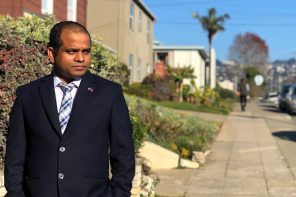Recently, Hamline University faculty called for the resignation of President Fayneese Miller following the firing of adjunct professor Erika López Prater for showing the image of the Prophet in Islamic art. While most commentators have focused on the wisdom and ethics of López Prater’s actions, it’s important to note that both she and Miller are part of a corporate system where the faculty earns much less compared to higher administration, whose salaries mimic those of CEOs of private companies. In such a system, PR damage control and punitive measures are given precedence over critical thinking and reasonable approaches, both of which have been in short supply in the handling of this incident.
While the issue has largely been framed as a conflict between freedom of expression and the cultural sensibilities of a minority group (i.e. Muslims), non-binary thinking allows us to transcend the “culture clash” narrative. It enables us to recognize when corporations indulge in performative activism rather than address issues where the corporations’ own skin is involved in the game. In other words, hanging rainbow flags to promote Equity, Diversity, and Inclusion (EDI) is a cheap tactic if LGBTQ employees are treated poorly when it comes to pay, benefits, leave, promotion, and job security.
Divide-and-rule is not a new tactic, for it’s well known in the Indian subcontinent that the British pitted one local Raja against the other based on tribe, religion, or caste—among other factors. The same applies to corporations as they stoke divisiveness in society by indulging in performative activism. They misdirect the attention of people towards who said what and why and away from the issues of better pay, better work-life balance, pension, healthcare benefits and the like. And this is precisely what Hamline University has done by firing a vulnerable adjunct professor, a move that, if anything, further stokes divisiveness and Islamophobia in society.
The message that Hamline has sent is that Muslims are an intolerant people who don’t value freedom of expression. And so, another example of a corporation indulging in PR damage control will be widely perceived as appeasement of an “intransigent” community. Additionally, the university’s tactic reduces all Muslims to a stereotypical hardcore Salafi or Wahabi iconoclast.
Such an unfortunate framing of Muslims, however, ignores the fact that many images of the Prophet have been patronized or revered by Sunni and Shia Muslims alike as evident from Ottoman and Persian art through the centuries. Moreover, such an ugly incident ignores that a grave injustice has been committed against the faculty member. Now, a similar approach is being taken towards the university president, where punitive measures are being called for over reasonable approaches to resolve the issue. Unless our responses are proportionate one injustice will inevitably be met by another injustice.
Freedom of expression is paramount in Islam. This is why differing rulings have existed in the corpus of Islamic jurisprudence. These include opinions as wide-ranging as the permissibility of date wine consumption by Iraqi (Hanafi) scholars and of charging interest by Meccan scholars. Additionally, even if López Prater did offend Muslim sensibilities, firing her is an extremely disproportionate disciplinary measure.
Given the push towards building critical thinking skills in an age of gross misinformation and information overload on social media, it’s paramount that academics are free to introduce students to pluralist perspectives on controversial issues. Otherwise, we risk slipping into a state where corporations and elite donors decide and dictate conversations. I want to emphasize that, unlike many who make the “free expression” argument, my concern isn’t that decisions are being dictated by sectarian sensibilities or disagreements, but rather that money is the bottom line; that the path of least damage to financial interests rules the day.
It’s only through free inquiry against powerful vested interests that we’ve been able to abolish slavery, oppose apartheid, and recognize genocide perpetrated by state actors. This continues to date, as we push against China’s repression of Uyghur Muslims, the Myanmar junta’s persecution of the Rohingya Muslims, the Israeli dispossession of Palestinians, and calls for genocide against Muslims under a far-right regime in India.
It levels the playing field in which Muslims of other denominations and persuasions can freely share their beliefs. This is especially true for minorities within minorities who are at the receiving end of Islamophobia on the one hand, and rigid beliefs as defined by one or another dominant Muslim group on the other.
Fortunately, many universities allow space for critical inquiry. And, in addition to the petition in support of Dr. López Prater issued by a group of academics specializing in Islamic Studies and allied fields, both the Muslim Public Affairs Council (MPAC) and even the Council on American-Islamic Relations (CAIR) have issued statements of support.
They’re rightfully concerned about the stifling of academic freedom in universities. But we should also be concerned because the university shouldn’t be a corporation, the student should not be treated as a customer, and faculty should not be treated as an input cost.





